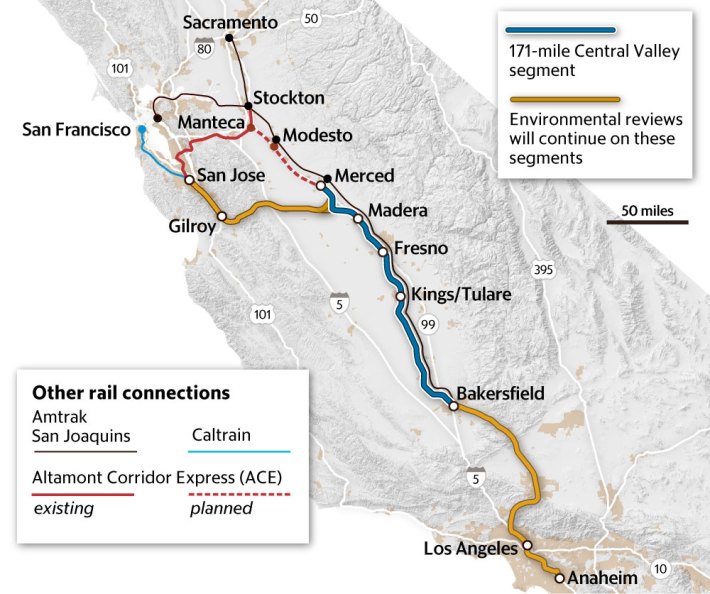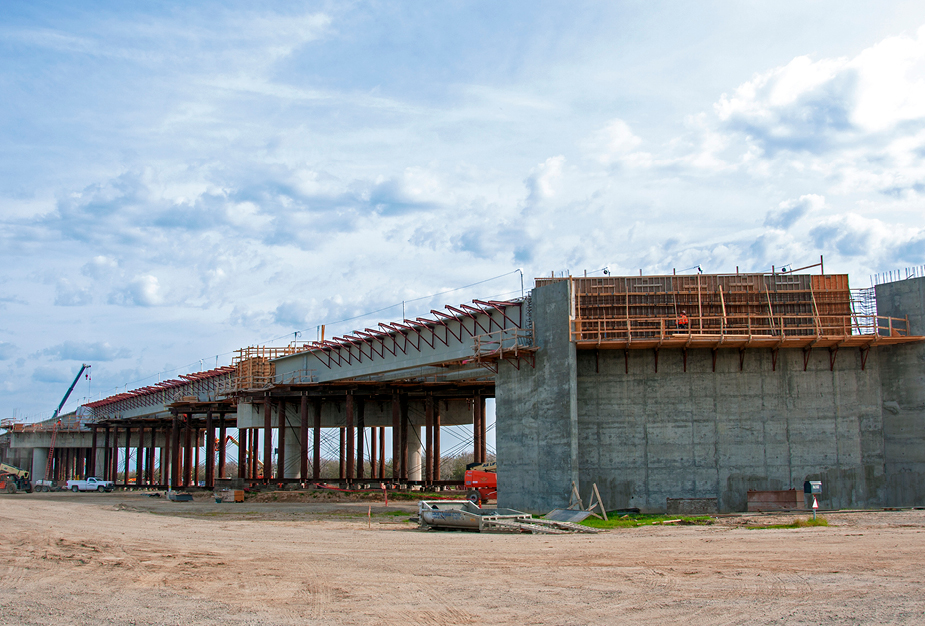As Mark Twain might have said had he witnessed the past couple of months, the reports of the death of California’s statewide high-speed rail system are greatly exaggerated.
There’s been a good deal of confusion regarding the future of the project in the Bay Area. The confusion is much fueled, it appears, by misunderstanding following Governor Newsom’s State of the State Address.
As Northern California’s Regional Director of the California High-Speed Rail Authority, I want to provide an accurate update on the status of the project in the Bay Area and Northern California.
The direction laid out by the Governor is similar to what the Authority had put forth in our 2018 Business Plan. Where we are building today in the Central Valley, the Governor wants us to finish the entire 171-mile Central Valley stretch to connect the three largest cities, totaling nearly one million Californians, and provide new economic opportunities to the region as we get trains rolling.

Beyond the Central Valley, we will continue the planning and environmental clearance efforts from San Francisco to Merced--this will take the next two years. The next milestone in this process will be our Board of Directors identifying preferred alternatives for the San Francisco to San Jose and San Jose to Merced project sections in September of this year. We are also continuing to pursue an agreement with the Union Pacific Railroad that would allow us to utilize the existing rail corridor from San Jose through Morgan Hill to Gilroy while extending electrified Caltrain service to Southern Santa Clara County. By advancing the environmental clearance and project development efforts in Northern California we will be prepared to utilize any new federal, state and/or private funding that may become available to complete the system in Northern California and connect to the Central Valley and eventually to Southern California.
In addition to our work in advancing planning for the system, we also intend to fulfill our commitments to the investments already underway in Northern and Southern California that will become parts of the system over time but provide immediate benefits today. In Northern California, this includes the $713 million for the Caltrain Electrification Project and $84 million for the 25th Avenue Grade Separation Project in San Mateo. And we will continue to collaborate with regional partners on planning for the Gilroy, Diridon, Millbrae, and San Francisco Stations.
I was recently reminded of what of BART’s legendary General Manager B.R. Stokes said when advocating for funding that transformative project: “Build it now; it will never be cheaper.” Today’s arguments around costs are as old as the oldest mass transit dreams spoken in California. With that in mind, we’re moving steadily forward to make high-speed rail a reality in the Bay Area and all of California. We see clearly a future when high-speed rail is as much a part of the California lifestyle and our regional economic structure as BART is today for the Bay Area while the furor over costs and funding are long behind us.
In the last few weeks, we have seen folks up and down the state re-express their desire and commitment to connecting the different regions of the state using high-speed rail to tie our economies and communities together. Folks from across the state are fervently looking for a solution to our transit and housing crises. Their voices have carried far and wide. This public discourse will only help our pursuit of future funding for completing not only our Northern California project sections, but those routes that will connect the Bay Area to the other major business and recreational areas of this vast and diverse state, making us all one California.
Boris Lipkin is the Northern California Regional Director for the California High-Speed Rail Authority






